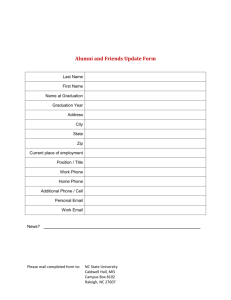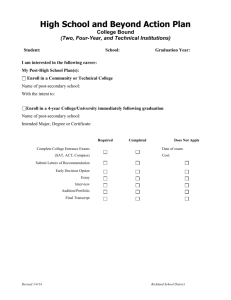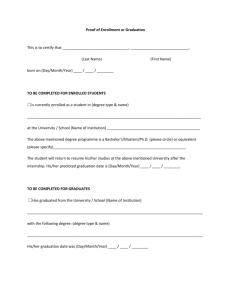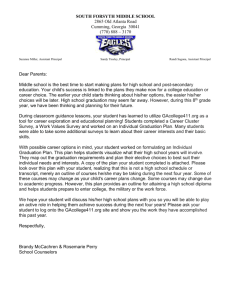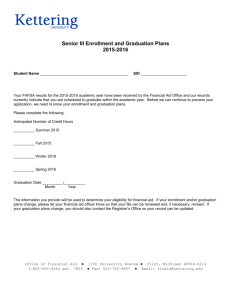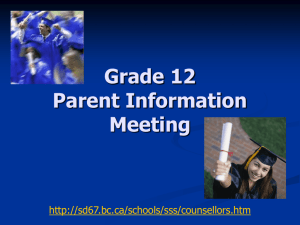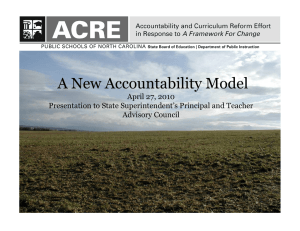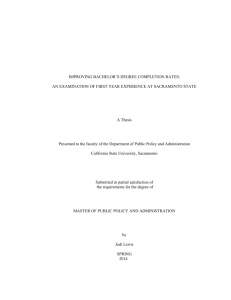High School Indicators
advertisement
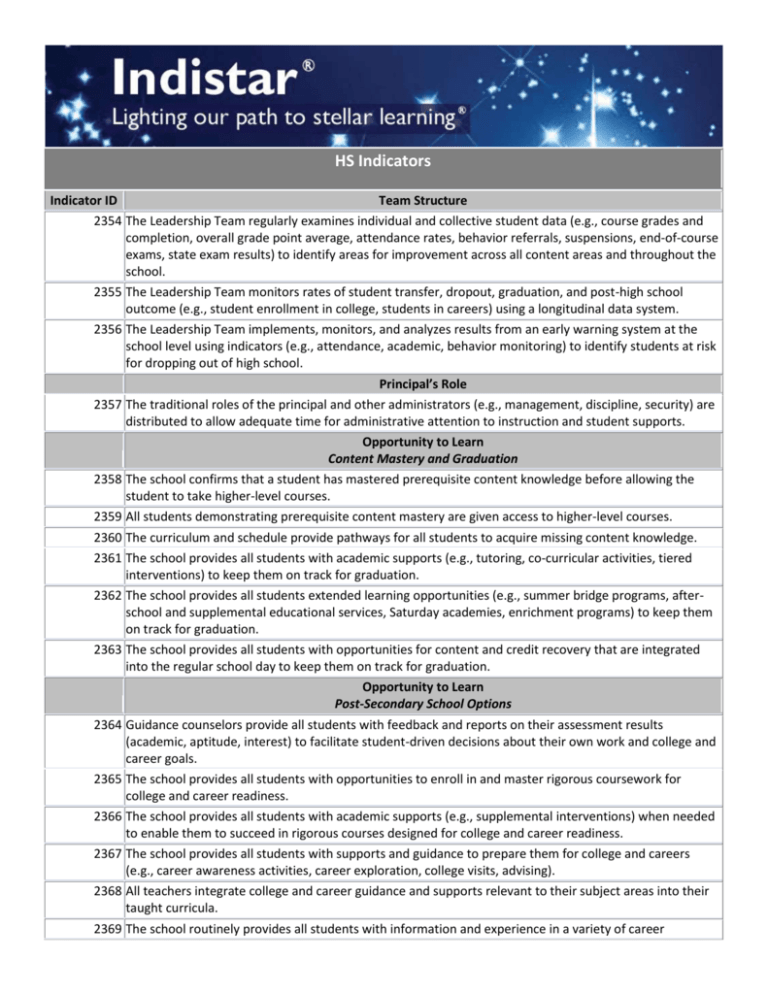
HS Indicators Indicator ID Team Structure 2354 The Leadership Team regularly examines individual and collective student data (e.g., course grades and completion, overall grade point average, attendance rates, behavior referrals, suspensions, end-of-course exams, state exam results) to identify areas for improvement across all content areas and throughout the school. 2355 The Leadership Team monitors rates of student transfer, dropout, graduation, and post-high school outcome (e.g., student enrollment in college, students in careers) using a longitudinal data system. 2356 The Leadership Team implements, monitors, and analyzes results from an early warning system at the school level using indicators (e.g., attendance, academic, behavior monitoring) to identify students at risk for dropping out of high school. Principal’s Role 2357 The traditional roles of the principal and other administrators (e.g., management, discipline, security) are distributed to allow adequate time for administrative attention to instruction and student supports. Opportunity to Learn Content Mastery and Graduation 2358 The school confirms that a student has mastered prerequisite content knowledge before allowing the student to take higher-level courses. 2359 All students demonstrating prerequisite content mastery are given access to higher-level courses. 2360 The curriculum and schedule provide pathways for all students to acquire missing content knowledge. 2361 The school provides all students with academic supports (e.g., tutoring, co-curricular activities, tiered interventions) to keep them on track for graduation. 2362 The school provides all students extended learning opportunities (e.g., summer bridge programs, afterschool and supplemental educational services, Saturday academies, enrichment programs) to keep them on track for graduation. 2363 The school provides all students with opportunities for content and credit recovery that are integrated into the regular school day to keep them on track for graduation. Opportunity to Learn Post-Secondary School Options 2364 Guidance counselors provide all students with feedback and reports on their assessment results (academic, aptitude, interest) to facilitate student-driven decisions about their own work and college and career goals. 2365 The school provides all students with opportunities to enroll in and master rigorous coursework for college and career readiness. 2366 The school provides all students with academic supports (e.g., supplemental interventions) when needed to enable them to succeed in rigorous courses designed for college and career readiness. 2367 The school provides all students with supports and guidance to prepare them for college and careers (e.g., career awareness activities, career exploration, college visits, advising). 2368 All teachers integrate college and career guidance and supports relevant to their subject areas into their taught curricula. 2369 The school routinely provides all students with information and experience in a variety of career pathways. 2370 The school provides all students with access to relevant data to make decisions about their course of study as they progress toward their college and career goals. 2371 The school provides all students with information, guidance, and support to secure financial assistance and scholarships for college or other post-secondary education. Opportunity to Learn Extended Learning Opportunities 2372 The school expects all students to participate in activities to develop skills outside of the classroom (e.g., service learning, athletics, enrichment, internships). 2373 The school provides all students with opportunities to learn through nontraditional educational settings (e.g., virtual courses, dual enrollment, service learning, work-based internships). 2374 The school provides all students with formal supports and a network of contacts with school personnel, community members, and workplace personnel to ensure the social capital necessary to make informed life decisions. Opportunity to Learn Transitions 2375 The school provides freshman students with formal supports as they make the transition to high school (e.g., summer bridge programs, freshman academies). 2376 The school provides senior students with formal supports as they make the transition out of high school (e.g., college and career planning, job fairs). 2377 The school tracks the post-secondary school placements and experiences of their graduates and reports the results to the school board, faculty, and school community.


